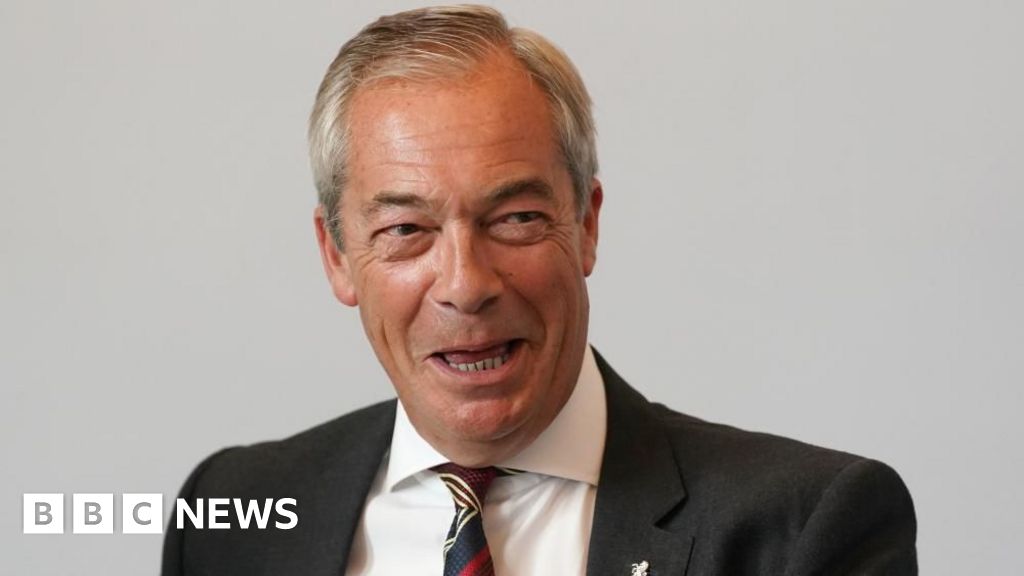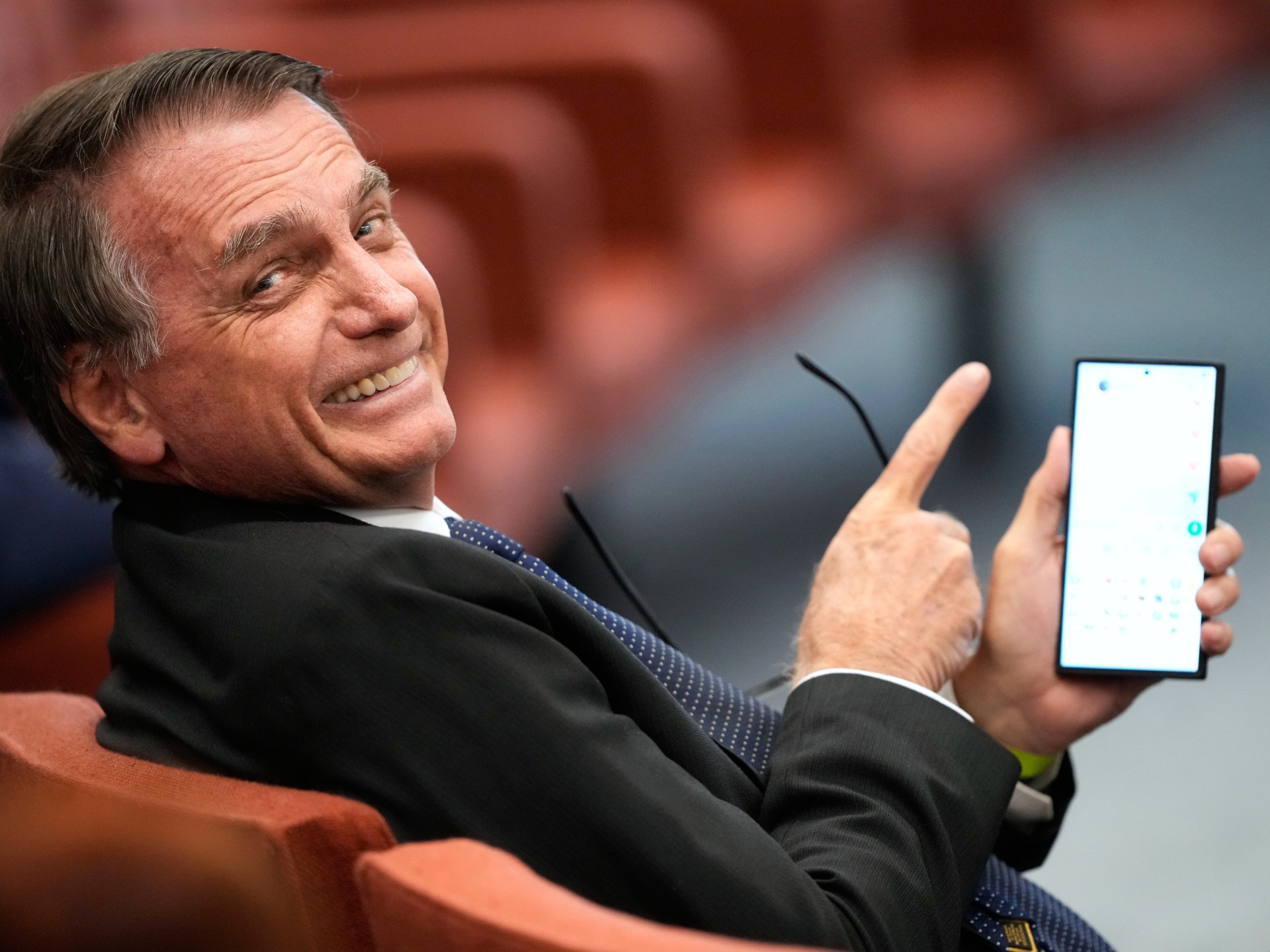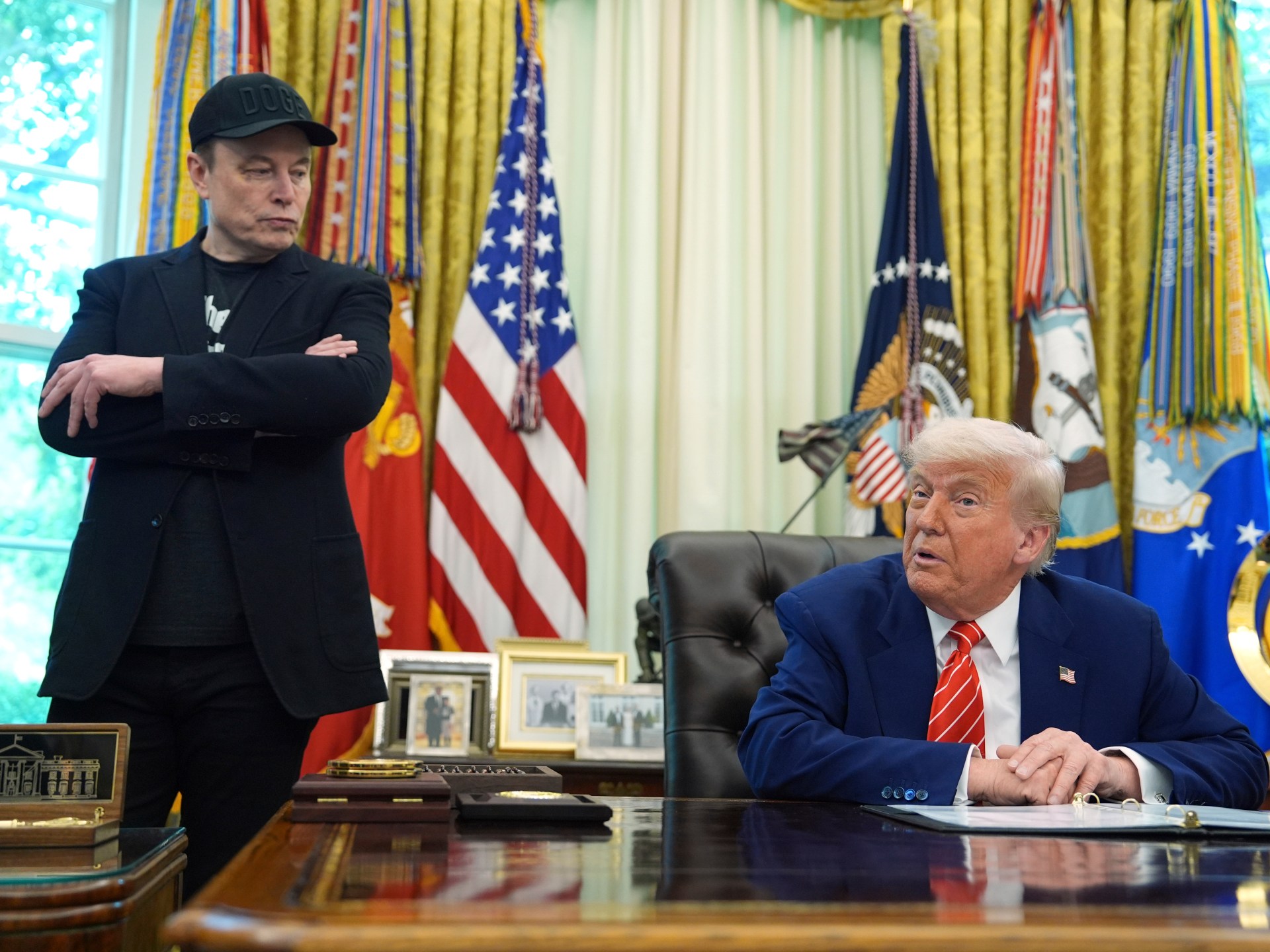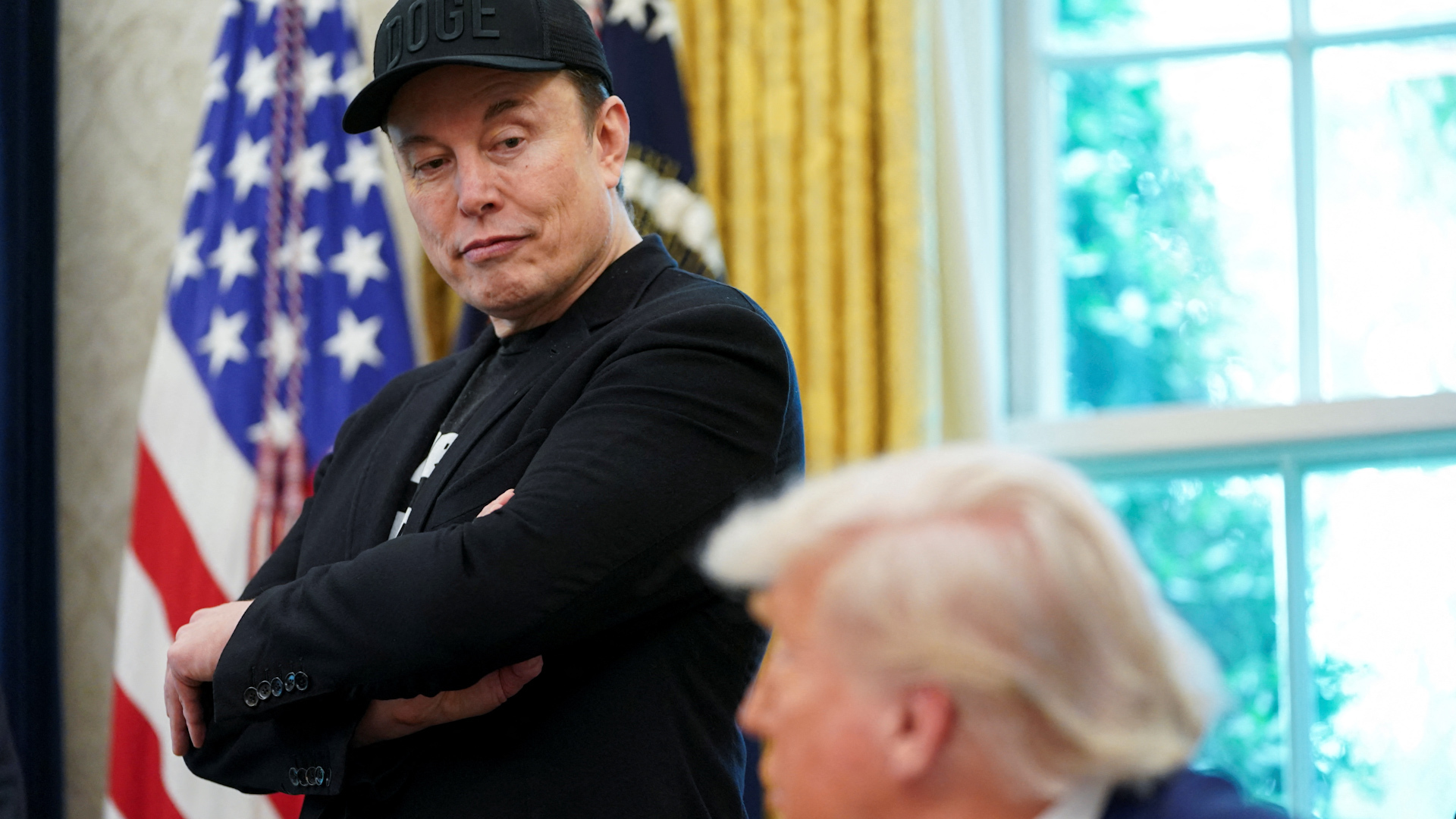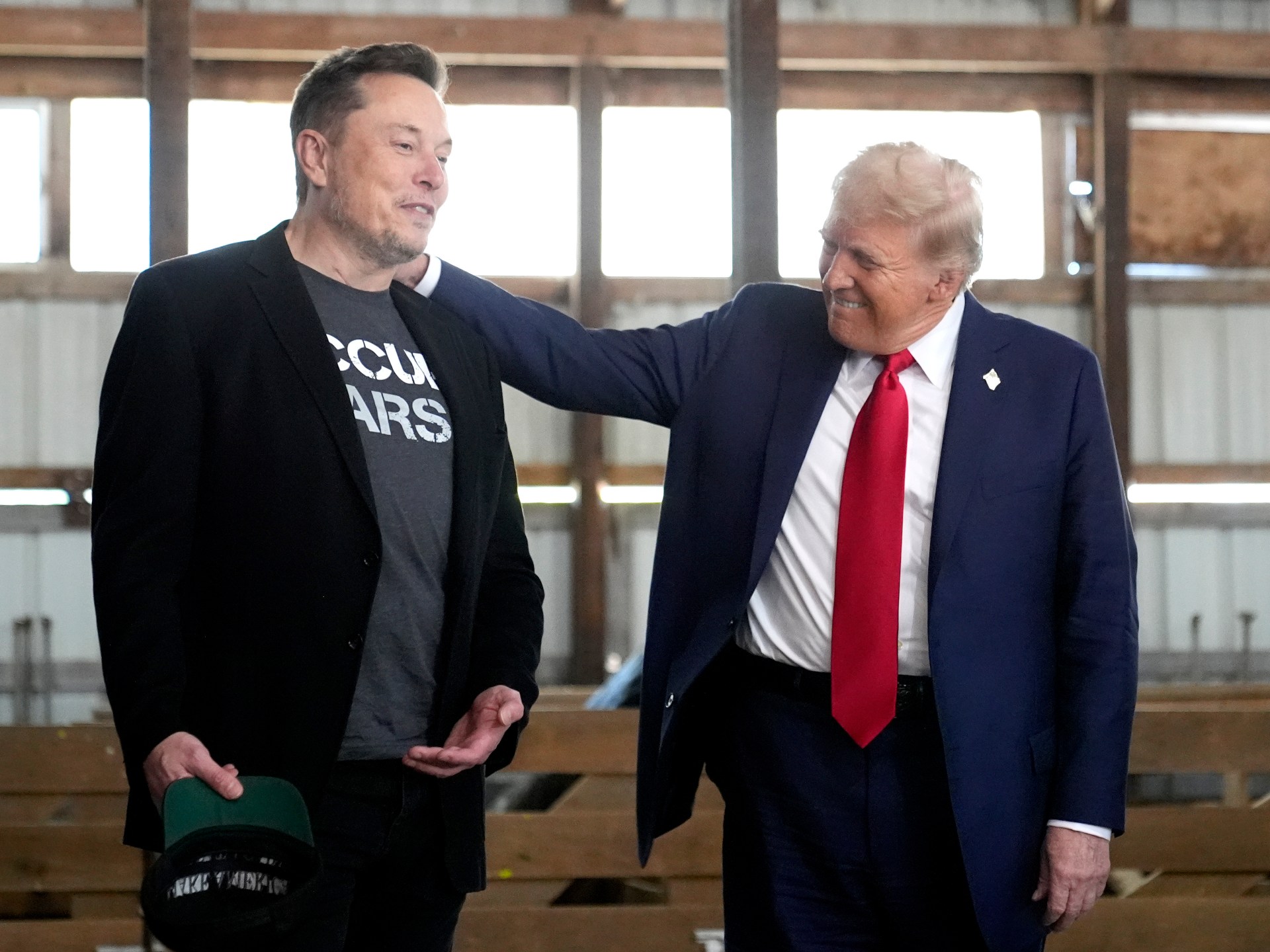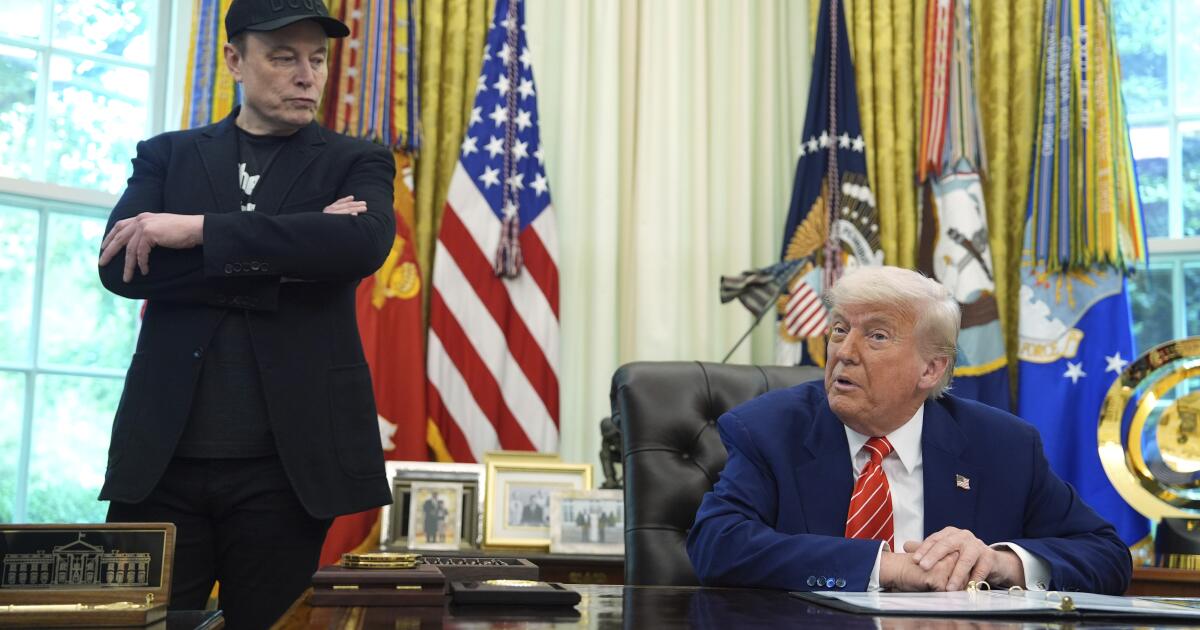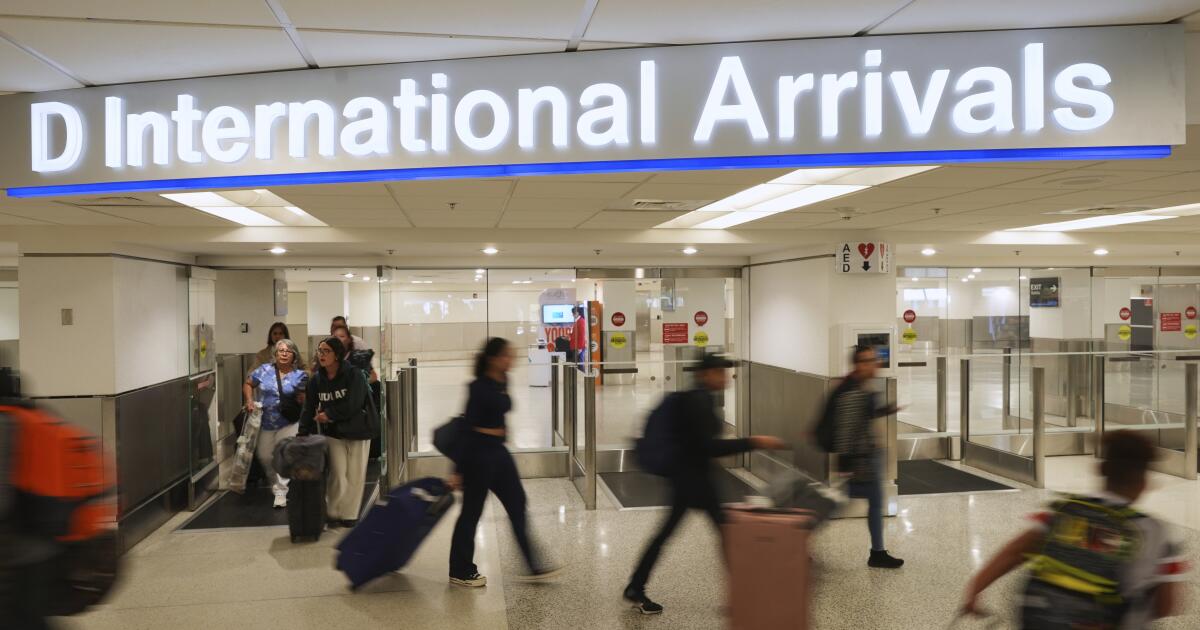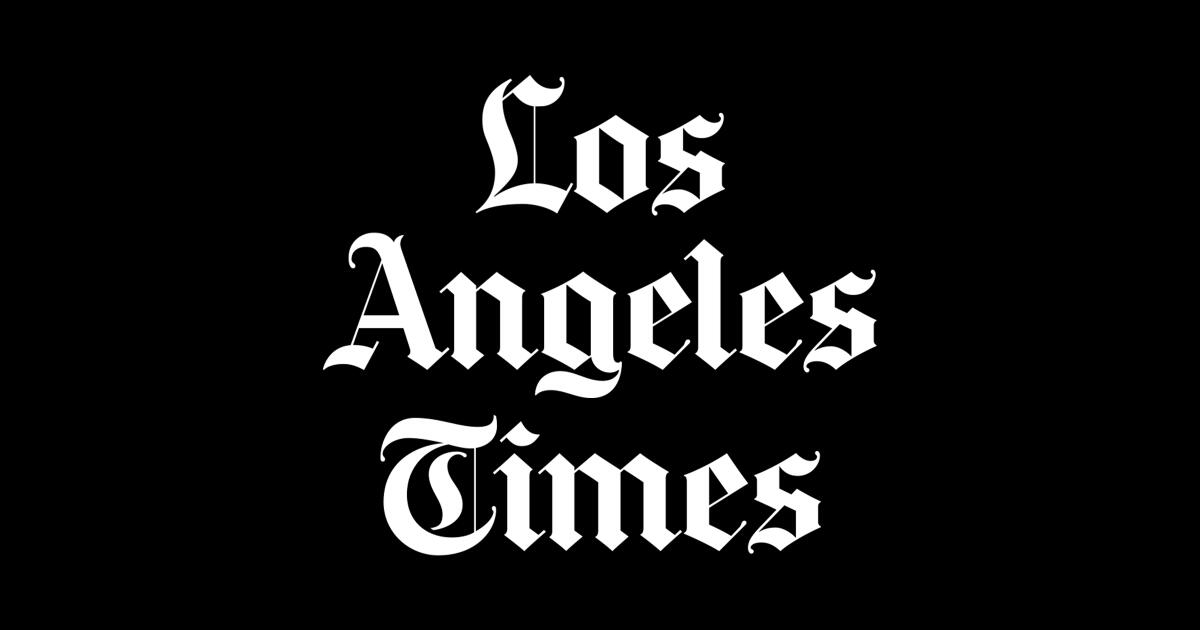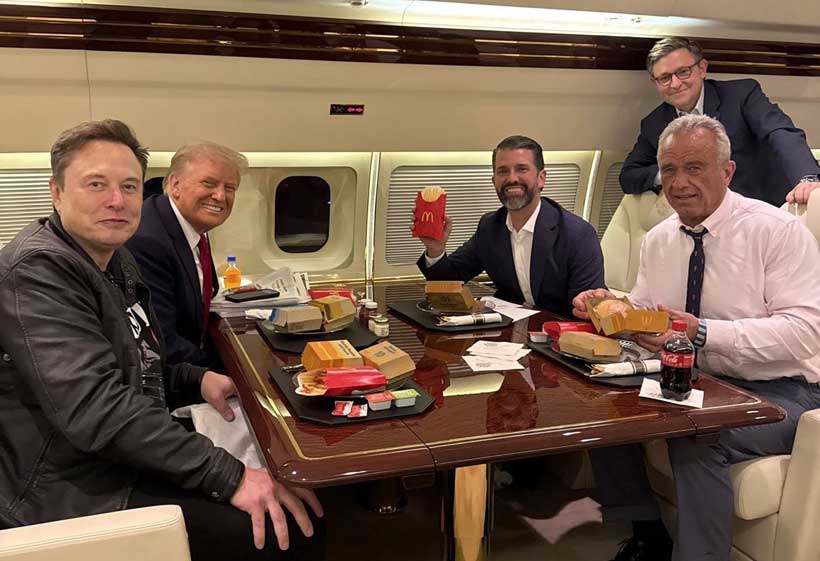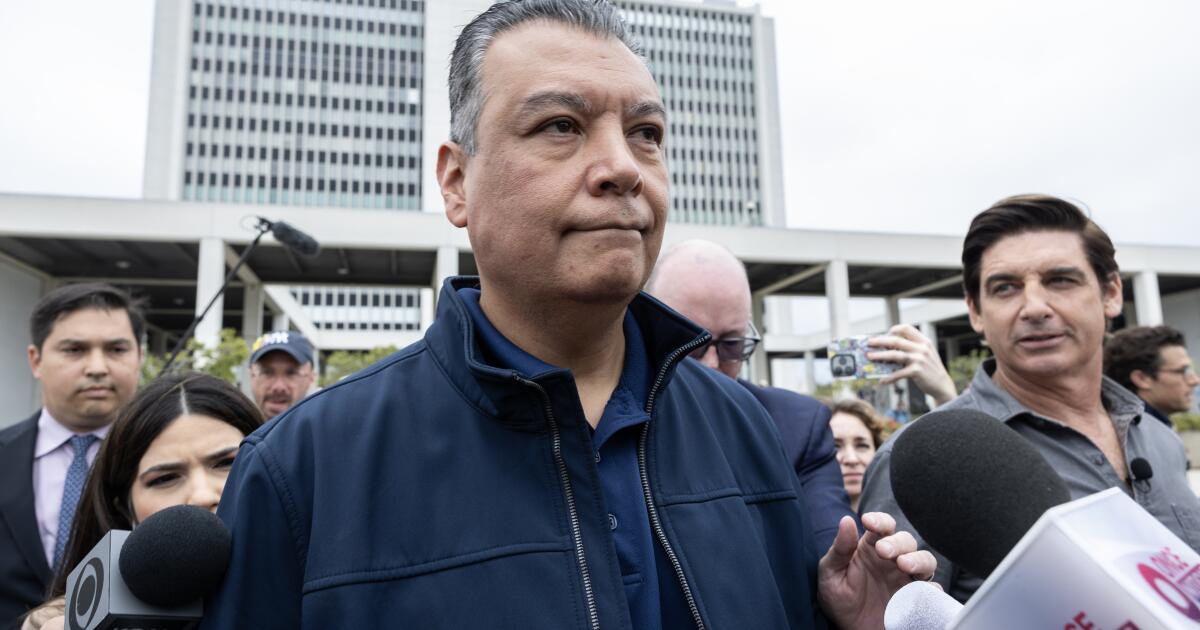WASHINGTON — For a president seeking reelection, Friday’s news of a surge in jobs could not have arrived at a more opportune moment–and President Clinton was quick to take advantage.
“We have the most solid American economy in a generation,” Clinton told reporters hours after the Labor Department reported that unemployment had fallen in June to a six-year low. “The American economy has created 10 million jobs since the beginning of this administration.”
It is a message the White House is certain to repeat often in the coming weeks for one politically powerful reason: Voters judge a president not only as commander in chief but in a very real sense as chairman of the board, the steward of their economic well-being.
While Clinton’s Republican challenger, Bob Dole, has spent most of the campaign so far castigating his opponent over such matters as war and peace, personal character and ethics, it is the public’s verdict on the economy that frequently determines election winners.
And at this point, barring some sudden change, “based on what I see right now with inflation and growth, my prediction puts Bill Clinton between 52% and 53%” in a two-way contest, said Helmut Norpoth, a political scientist at the State University of New York at Stony Brook who has looked at the role of the economy in elections dating back to 1872.
Michael Lewis-Beck, a professor at the University of Iowa and author of a book on forecasting presidential elections, concurs.
The economic figures would indicate that “the election isn’t going to be a landslide, but it wouldn’t be a squeaker either,” he said.
Battle Continues
The timing of Friday’s unemployment report may be particularly auspicious for Clinton because the incumbent usually wins reelection when unemployment is falling at midyear, Lewis-Beck says. The economic performance in the fall is not so important because voters’ perceptions of the economy seem to lag behind the actual statistics by several months, analysts say.
Yet for all that, the crucial battle over the economy may not be over yet. Dole can take at least some comfort in evidence that voters have been less than euphoric about the state of the economy and divided over whether the president or his Republican challenger would do a better job in the head office.
On the campaign trail, Dole seeks to reinforce public doubts by lamenting a “Clinton crunch” and claiming that tax increases and over-regulation have cut into the national prosperity. He and his aides argue that many Americans have been frustrated by stagnant incomes and that the pace of economic growth has trailed that of earlier decades.
The Republican candidate was silent on the economy Friday–he and his advisors have been working on an economic plan to put forward, but they have yet to announce one.
Speaking for Dole, his press secretary, Nelson Warfield, said in a statement: “Even as more people found jobs last month, a stunning 70% of Americans agreed the country is on the wrong track,” a reference to recent public opinion polls. “If people are finding jobs but are still unhappy about where the nation is headed, Bill Clinton is in serious danger of unemployment himself.”
Changing Times
The latest economic figures are a notable contrast with those released this week four years ago, when Clinton was the challenger against Republican incumbent George Bush and the June unemployment report showed an increase in the jobless rate, from 7.5% to 7.8%.
Bush, deeply worried about the economic numbers, called on the Federal Reserve that very day to reduce interest rates. The Fed immediately cut the “federal funds” rate (which banks charge each other for overnight loans) from 3.75% to 3.25%. That may have helped end the recession, but it did not save Bush’s job.
This year many analysts believe that the Republicans will have difficulty selling the notion that Clinton has failed in his financial duties during his term in office, because the economy has performed relatively well in some of the ways that households care most about. Employment is high. Inflation is low. Not surprisingly, consumer confidence has registered at solid levels in recent surveys.
Remember the Misery Index? That infamous duo of unemployment and consumer inflation, which added up to almost 22% in 1980, is now below 9% and has been hovering at the lowest levels since the late 1960s.
Not only is unemployment low, but inflation remains stable and subdued around 3%, little changed from the day Clinton took office.
Interest rates have varied. The key 30-year Treasury bond, which stood at 7.6% in late 1992, plunged from 7.88% to 5.95% during 1995 before beginning to rise again earlier this year as the economy expanded. The bond yield jumped from 6.93% Wednesday to 7.19% Friday.
In addition, the federal budget deficit has shrunk by half since Clinton took office.
Contrary Messages
To this day, many conservatives remain angry that Clinton endorsed a deficit-reduction plan in 1993 that increased top income-tax rates for the affluent. Others, however, credit the program with helping to cut the deficit while preserving economic growth.
Even public anxiety over layoffs and corporate downsizing, so ballyhooed in prominent media reports, appears exaggerated, according to polling experts.
“If a Republican were running on this record, you’d hear nothing from the Republican side but, ‘Look what a good job we did,’ ” said Harvard University economist Benjamin Friedman. “I think the economy should definitely be a plus–and a large plus–for Clinton.”
Not surprisingly, a contrary message emerges from the Dole camp. Its assessment: Meager gains in productivity and a trend of subpar economic growth under Clinton have harmed progress in living standards. “Now it’s time to do something about it,” said John B. Taylor, a Stanford University economist who is advising Dole.
Some of the public opinion polls, such as surveys of consumer confidence, do not capture the undercurrents of unease that many Americans feel about the long-term performance of the economy, Taylor added. “I think most of those concerns reflect the slower long-term growth,” he said.
Yet many economists question whether the pejorative label, “Clinton crunch,” gives a true picture of long-term or even short-term trends in the economy.
The U.S. economy expanded at an average annual pace of 1.6% during the years of Bush’s presidency, according to David Wyss, an economist at DRI-McGraw Hill in Lexington, Mass. Under Clinton, Wyss said, the tempo picked up to 2.3%.
Gauging the Mood
Productivity gains–a key driver of living standards–have dipped during Clinton’s term, a matter of concern to economists, although the timing of economic slumps and recoveries complicates any comparisons of different periods.
Eager to put the Clinton statistics under a harsh light, a clutch of GOP advisors has been pressing Dole to unveil a bold plan of across-the-board tax cuts as a way to highlight his devotion to rising living standards. But the candidate has yet to sign off on a final plan.
“And, frankly, with the economy purring along fairly well right now, it’s a hard case to make to the American public that we need a major revolution,” Wyss said.
Certainly, the voters of 1996 view conditions to be more robust than they did four years ago.
In a May Gallup Poll, only 12% of voters considered the economy to be the nation’s most important problem, and just 13% cited jobs as the worst problem. Four years earlier, 29% cited the economy and 21% pointed to jobs.
Similarly, consumers are much more upbeat today. A June index of consumer confidence by the Conference Board came in at a solid 97.6. The same index had plunged to 61.2 four years earlier.
What is more, there is scant evidence that Americans are gripped with the rising terror of losing their jobs, for all the attention to layoff announcements this year. The number of Americans reporting such anxiety–slightly more than a third, according to Gallup polls–is significant but is about the same as it was four years ago.
To some analysts, this means that the media exaggerated the degree of worker anxiety earlier this year, when news coverage zeroed in on the GOP presidential campaign of Patrick J. Buchanan and his focus on the vulnerability of U.S. workers in a world of free trade and corporate downsizing.
“The public didn’t buy into it even when they were hearing most about economic anxiety, and on the whole that’s still true,” maintained Everett C. Ladd, director of the Roper Center for Public Opinion Research at the University of Connecticut.
Still, Dole may find reason for hope in voter attitudes about which candidate would be better for the economy.
In late June, a Wall Street Journal/NBC News poll found that 37% of Americans felt Clinton would do a better job dealing with the economy, while an almost equal 34% chose Dole. Those findings were similar to the most recent Los Angeles Times Poll, in April.
In fact, one scholarly prognosticator of elections, Ray C. Fair of Yale University, gives Dole the edge in November, in part because of the less-than-spectacular pace of economic growth, though the race appears “so narrow as to be essentially a dead heat.”
It should be noted, however, that forecasting how the economy will influence an election is hardly an exact science. To cite one recent whopper, Fair, Lewis-Beck and others picked Bush in 1992.
Questions of forecasting aside, there may be an irony here: No president can exercise much immediate influence over the $7.5-trillion U.S. economy. On top of that, Clinton has served in a time when his party does not control Congress, further reducing his powers.
“The president has very limited importance in the short run about what happens with the economy,” said Jeremy J. Siegel, an economist at the University of Pennsylvania’s Wharton School.
“I think he’s been lucky the economy has done well. Some of that good fortune is going to rub off on him.”
* MARKET JITTERS: Stocks, bonds hit amid fears of further upheaval Monday. D1
* PENT-UP DEMAND: Southland housing market takes rate boost in stride. D1
(BEGIN TEXT OF INFOBOX / INFOGRAPHIC)
Measuring the Misery
The misery index–the sum of the unemployment rate and inflation rate–is lower this election year than in any since 1968. In the table, the unemployment rate is an annual average, and the inflation rate is the yearly change in the consumer price index.
*–*
Unemployment Inflation Misery Presidential rate rate index result 1996* 5.6% 2.9% 8.5% ??? 1992 7.4% 3.0% 10.4% Incumbent lost 1988 5.5% 4.1% 9.6% Incumbent’s party won 1984 7.5% 4.3% 11.8% Incumbent won 1980 7.1% 13.5% 20.6% Incumbent lost 1976 7.7% 5.8% 13.5% Incumbent lost 1972 5.6% 3.2% 8.8% Incumbent won 1968 3.6% 4.2% 7.8% Incumbent’s party lost 1964 5.2% 1.3% 6.5% Incumbent won 1960 5.5% 1.7% 7.2% Incumbent’s party lost
*–*
* 1996 unemployment as of May, CPI change for 12 months ending in May
Source: Labor Department
